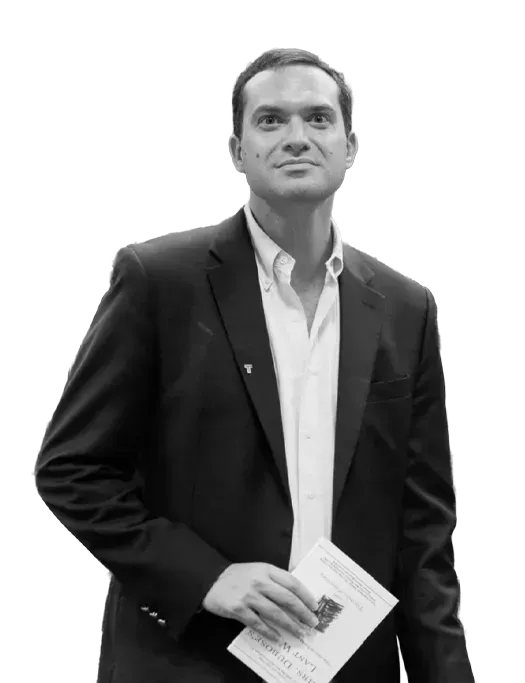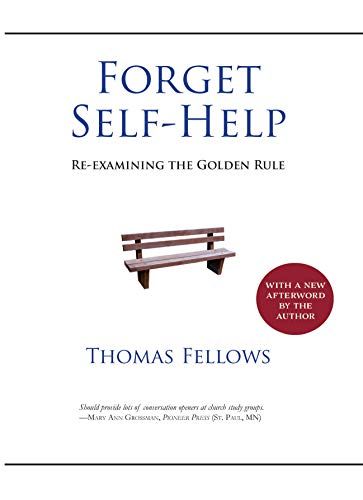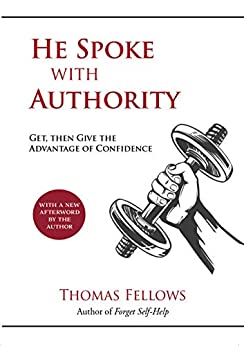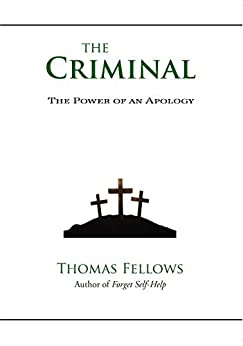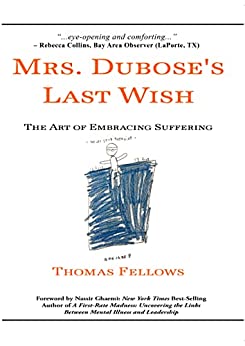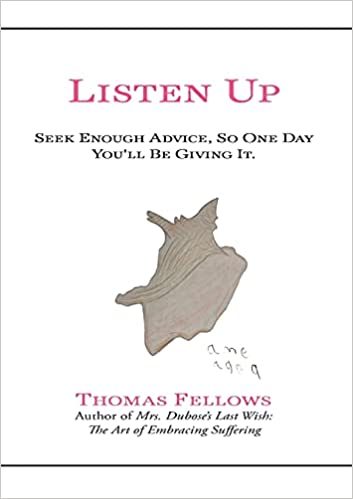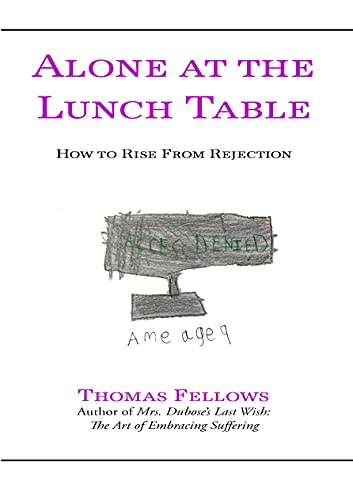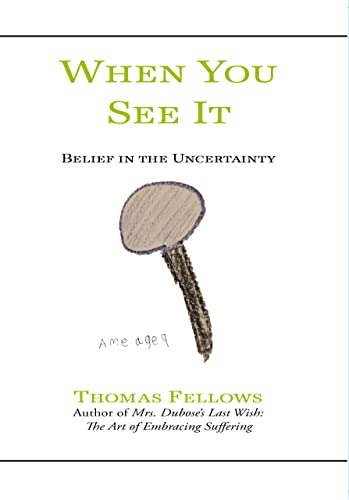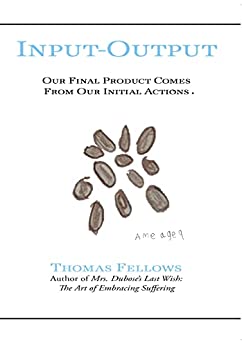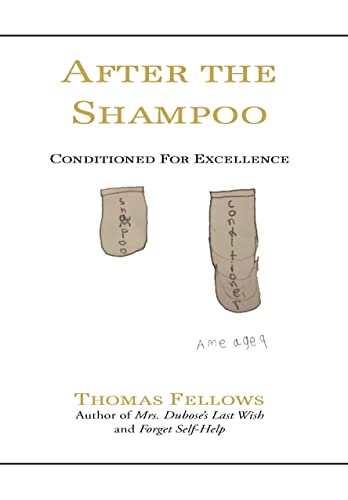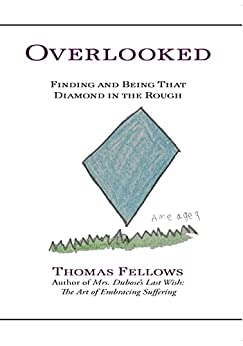about
tHE AUTHOR
Thomas Fellows is an author of personal growth books that seek to weave history, classic literature, biblical scripture, popular music, movies, and psychology together to help you be more successful, make the world a better place, and help you excel in whatever environment you're in. His books are meant to make you think not only outside of the box but nowhere near the box.
There is no book out there today like Forget Self-Help, by Thomas Fellows. Through his use of literature, history, psychology, scripture and personal experiences, Fellows stresses the importance of living out the Golden Rule of Matthew 7:12 to live a fulfilling, joyful life. While there has been a myriad of self-help books that have come out in the last decade, Fellows contends that the best way to help yourself is to help others. From his life experiences in the computer software sales world to his ongoing struggle with clinical depression, Fellows deftly encourages the reader to think of their troubles in a different light, a light that puts the emphasis on others instead of oneself.
Southern in nature, Forget Self-Help focuses on four main subjects: two literary and two historical. The book explores the profound writings and actions of Robert E. Lee, and includes quotations and thoughts from Martin Luther King Jr. that the lay person probably has not seen. From a literary perspective, the book focuses on the two books that has arguably changed the American landscape the most any two books have in history: To Kill a Mockingbird by Harper Lee and Uncle Tom's Cabin by Harriett Beecher Stowe.
While the book references scripture quite often, it challenges modern Christian thought in the way that both To Kill a Mockingbird and Uncle Tom's Cabin did. It emphasizes Jesus' teaching in Matthew 7:12 that "So in everything, do to others what you would have them do to you, for this sums up the Law and the Prophets." Forget Self-Help reminds the reader that since we will never see God on Earth, we are called to be God's agents while on earth, and we should attempt to find favor not just with God, but with man as well.
While one of the sources in the book is the Bible, it is intended to be enjoyed by people of all faith backgrounds.
In many circles in today's culture, confidence is almost seen as a sin. We don't want to show anyone up, so we don't try to go for the gold. Worse yet, we are afraid we might fail if we pursue our dreams, so we don't even try.
In Thomas Fellows' He Spoke with Authority: Get, then Give the Advantage of Confidence, he outlines why God wants us to give our all for His purposes and for the sake of others. The title, He Spoke with Authority, is taken from Matthew 7:28-29, where the crowd of people begin to realize that Jesus is different; he speaks with authority and not as their teachers of the law. Fellows' uses popular music such as Taylor Swift, Pitbull, Dave Matthews Band, Eminem; popular movies such as "Good Will Hunting," "Mean Girls" and "Gran Torino;" historical figures such as George Washington, Harriet Tubman, Robert E. Lee, Martin Luther King Jr., Jackie Robinson and Abraham Lincoln; classic literature such as Jane Eyre and The Great Gatsby as well as biblical heroes such as Moses and Mary, to make his points.
Fellows argues that once we become confident in ourselves, we will be more empathetic, humble, and ready to carry out tasks for each other and the Lord.
The book does reference Christianity from time to time, but it is meant to be read by people of all faiths.
Like its predecessor, Forget Self-Help, there is no book out there like The Criminal: The Power of an Apology. Through the use of literature, historical figures, music, movies, and scripture, Fellows encourages us all to imitate the--fairly unknown--criminal on the Cross who repents before he is crucified next to Jesus in Luke 23:39-43.
Fellows asserts that this criminal exemplifies the character traits we all need in our daily walk with Christ which are humility, integrity, vulnerability, discipline, gratitude, and courage. Only when we possess this, Fellows writes, will we begin to realize our God-given potential and in doing so, become closer to others and God. Fellows' uncanny ability to link seemingly disparate items together to form and frame arguments will help you learn more about your faith, as well as challenge you. Through his use of fairly obscure Bible verses, as well as classics you have heard since elementary school, your knowledge of scripture will increase and faith will deepen.
The Criminal encourages you to be a man or woman after God's own heart. While Fellows does argue that we need Jesus's grace to get into heaven, he is unafraid to outline why these character traits that the criminal possesses allows us to get closer to Him and others.
FROM THE INTRODUCTION: The main thesis of this book, I suppose, is that while 99% of the world tries to avoid suffering, the most successful people and people that will be remembered for generations to come, not only choose to suffer, but embrace it fully, often asking for more. Suffering is not for the faint of heart, but neither is anything that leads to something truly meaningful.
Who could have ever thought that an author could put historical figures such as Martin Luther King Jr., George Washington, Robert E. Lee, and Abraham Lincoln, songs by popular musicians such as Dave Matthews Band, T.I., Rihana, John Mayer, Christina Aguilera, movies such as Rocky, Passengers, Animal House, and Richard Jewell, classic literature such as To Kill a Mockingbird, Flowers For Algernon, Uncle Tom's Cabin, and Lord of the Flies, the rags to riches story of Tech CEO Bill McDermott, and Job from the Old Testament in a single book? One person did. His name is Thomas Fellows, the author of this book.
100% of all profits from the book are going to NAMI (National Alliance for Mental Health) for suicide awareness in hopes that not another person will ever commit suicide. The climax of the book is when Fellows, who had read previously in the New York Times best-selling book, A First-Rate Madness: Uncovering the Links Between Mental Illness and Leadership by Nassir Ghaemi, that the more pain you go through, the more empathy you have for others. Because he learned this, in 2016, when he was suicidal, instead of complaining to God for the pain he was going through, he thanked Him. In doing so, he lived out the Golden Rule, which can be found in all major religions including Judaism, Hinduism, Christianity, Islam, and Buddhism.
The book was inspired by the writing that 4-time New York Times best-selling author David Brooks wrote on suffering in The Road to Character and by a little-known character in To Kill a Mockingbird by Harper Lee named Mrs. Dubose. In the book, Fellows highlights her choice to choose to suffer by getting Jem, Atticus' son, to read to her so she would be distracted from the pain of going through morphine withdrawal.
The main thesis of this book is that the most wise and powerful make an effort to seek out advice and don’t act like they know it all, while the least powerful people take the opposite approach. Listen Up: Seek Enough Advice, So One Day You’ll Be Giving It, was inspired by a quote from Harper Lee when she said, “many receive advice, but few profit from it” and by another quote from David Brooks in his New York Times best-selling book, The Road to Character, when he said, “humility is the awareness that there’s a lot you don’t know and that a lot of what you think you know is distorted or wrong.”
Like previous books Fellows has written, he uses biblical scripture such as The Book of Proverbs, popular music such as Alanis Morissette, Major Lazer, Phillip Phillips, and Bill Withers, movies such as “Tin Cup” and “Happy Gilmore,” classic novels such as Things Fall Apart by Chinua Achebe, A River Runs Through It by Norman Maclean, To Kill a Mockingbird by Harper Lee, and Uncle Tom’s Cabin by Harriet Beecher Stowe, and historical figures such as Thomas Jefferson and Abraham Lincoln. Fellows also highlights the ability to listen that his mentor, tech CEO Bill McDermott, has shown throughout his career at Xerox, SAP, and currently at ServiceNow.
Here’s not only an original quote from the book, but what you can expect from the book if you end up purchasing a copy:
“Truly being open to guidance doesn’t mean that you don’t know the answer, it means you are humble enough to admit that there’s a possibility, as slight as it could be, that you don’t know the answer. Having that type of mentality is the only way to grow, because you only grow when you are tested, and you in order to pass a test, you must listen.”
To take rejection personally or not? That is the question that Thomas Fellows seeks to answer in Alone at the Lunch Table: How to Rise from Rejection.
We’ve all been rejected before whether it be in a relationship, job, admission to a school, or certain club or institution. This book encourages you to not only grow from rejection, but ask for it—and, at times, seek it out.
Through Fellows’ use of Biblical characters such as Joseph, popular music from Justin Bieber, BTS, Tears for Fears, movies such as Mean Girls, The Social Network, Wolf of Wall Street and Mud, historical figures such as Geroge Marshall, Robert E. Lee, Martin Luther King Jr., Robert E. Lee, and Abraham Lincoln, and the novella The Pearl by John Steinbeck, Fellows encourages the reader to be thankful for rejection because, invariably, the times where we have grown most have been the times where we have been rejected.
If you purchase this book, be expecting original quotes such as the one below:
“Be careful when you look down on someone, thinking that they are behind you. I’ve found that people who appear in your rearview mirror can enter your blind spot sooner than you think, and, while you can’t see them anymore and think that they are now in your blind spot, you’ll be remiss to realizing that the positions have switched; you’re now in their blind spot because they’re ahead of you. They’ll stay ahead of you because, unlike you, they’re not looking down on anyone and are instead, zooming ahead.”
Seeing someone for who they really are. What exactly does that mean and how will it impact your life if you start to do it? That is the answer Thomas Fellows seeks to explain in his 7th book, When You See It: Belief in the Uncertainty.
The title of the book is a play on the phrase, “I’ll believe it when I see it.” Through Fellows’ use of movies such as Beauty in the Beast, Field of Dreams, Shrek, music by Eve 6, All-American Rejects, Alicia Keys, Shania Twain, classic literature such as Frankenstein by Mary Shelley, To Kill a Mockingbird by Harper Lee, Of Mice and Men by John Steinbeck, To Dance with The White Dog by Terry Kay, historical figures such as Abraham Lincoln, Martin Luther King Jr. and Robert E. Lee, and the books of Genesis and Matthew from the Bible, and the improbable relationship tech CEO Bill McDermott and himself, Fellows encourages you to glance through the clutter and see people for who they really are. What if instead of saying, “I’ll believe it when I see it,” you gain the humility in the first place to see someone the way they were meant to be seen?
If you purchase a copy of When You See It, expect some original quotes from Fellows like the one below:
“The cover—or the outside—distracts us from seeing what’s on the inside more often than not even though it contains no content—or, nothing to learn from. When people refer to what percentage of a book they’ve read, they often describe their progress by the number of pages they’ve read; they’re telling you how much content they have gotten through; only then can they truly judge a book. Judge people the same way. Count the pages you’ve read before you start drawing conclusions.”
One saying you've probably heard a million times is "what you put in is what you get out." Is it true, though? That is the question that Thomas Fellows attempts to answer in his latest book, Input-Output: Our Final Product Comes from Our Initial Actions.
By using historical figures such Abraham Lincoln, Ronald Reagan, FDR, Frederick Douglas, Robert E. Lee, music from John Mayer, Foster the People, Destiny's Child, movies such as Moneyball, Seabiscuit, the novella by Robert Louis Stevenson, The Strange Case of Dr. Jekyll and Mr. Hyde, the rags to riches story of tech CEO Bill McDermott and the Bible, Fellows will convince you that you reap what you sow.
Do we or don’t we have free will? That is the question Thomas Fellows seeks to answer in his newest book, After the Shampoo: Conditioned for Excellence. The book, which was inspired by Malcom Gladwell’s David and Goliath: Underdogs, Misfits, and the Art of Battling Giants, introduces the reader to a little-known way of thinking called hard determinism. Hard determinists claim that free will doesn’t exist.
Throughout the book, Fellows debates whether the following quote by Baruch de Spinoza is true:
“Men are deceived because they think themselves free…and the sole reason for thinking so is that they are conscious of their own actions, and ignorant of the causes by which those actions are determined.”
By using popular movies such as Get Out, Finding Forrester, Cinderella, historical figures such as Abraham Lincoln, Robert E. Lee, FDR, Martin Luther King Jr., John Winthrop, music such as Queen, Dire Straits, The Beatles, Dave Mathews Band, and the coming-of-age novel A Separate Peace by John Knowles, and several books from the Bible, Fellows goes back and forth debating whether we have free will.
Brimming with self-help, by reading this book, you will be able to navigate everyday scenarios more effectively in which hard determinism may or may not play a factor in the outcome.
In an increasing era where everything comes at us in an instant, Fellows will remind you, the reader, that success happens through a process, and, if you can repeat the process over and over again, you will lead a life to be remembered.
When you first hear the word overlooked, you immediately think you’re being passed over, rejected, or at the very best, welcome to try again, or at the very worst, never welcome to come back. What if you were to succeed in the end, not just in spite of being overlooked, but because you were overlooked?
Just think of the old Disney movie Cinderella: in that movie, the wicked stepmother’s first thought is to try and get her daughters to the ball so that they may possibly attract the young prince. But who ultimately gets the young prince? It is Cinderella, who is initially overlooked. That word initially, it reminds me of a Zig Ziglar quote when he said, “it’s not where you start, but where we finish.”
Have we been looking at things the wrong way all along? Can a slow start lead you to finish first?
In Overlooked: Being and Finding that Diamond in The Rough, through dissecting movies such as The Big Short and Rudy, classic literature such as The Adventures of Tom Sawyer, the lives of General George Marshall and famous tech CEO Bill McDermott, music from Avril Lavigne, DMX, and Dave Matthews Band, and the story of the Biblical character Noah, Thomas Fellows will make you question whether being overlooked is a negative, after all.
People of influence
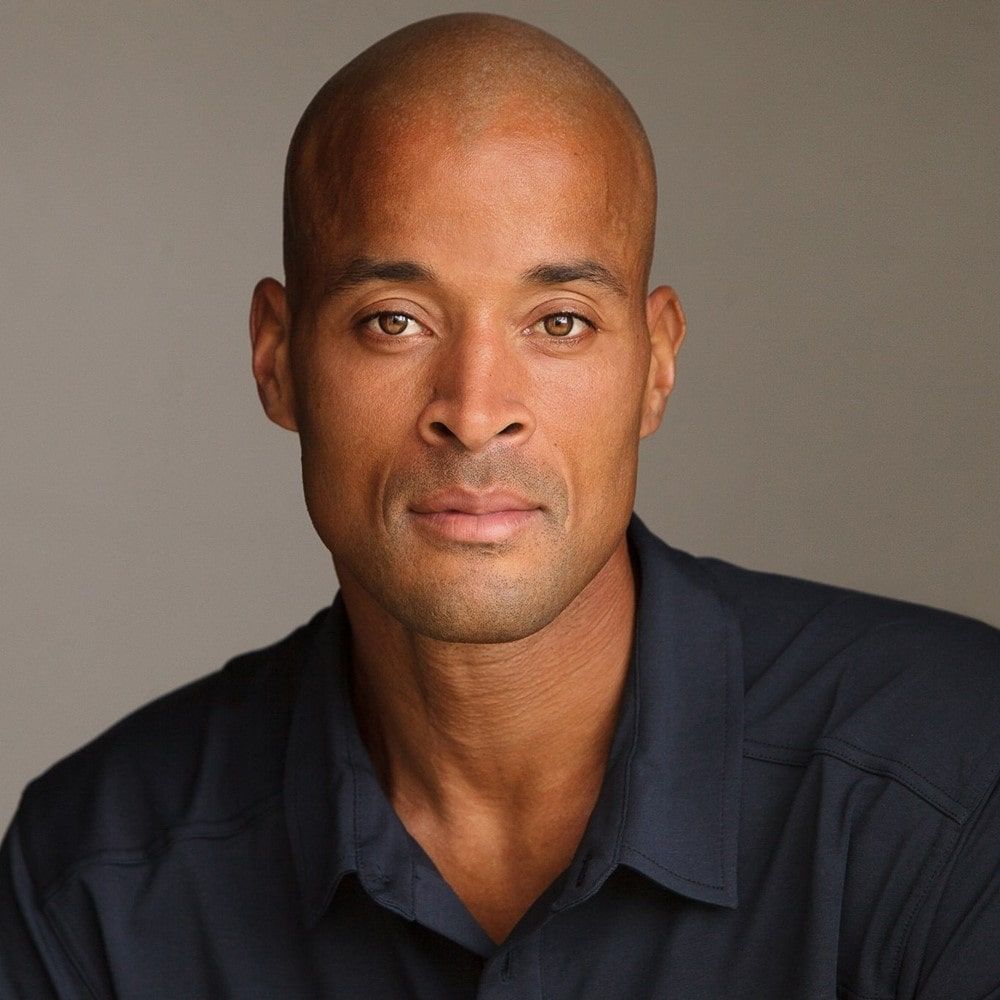
David Goggins
Goggins is not only a great motivator; he has a high degree of integrative complexity in his arguments. Goggins makes the claim that most humans are only living at 40% of their capability. I completely agree.
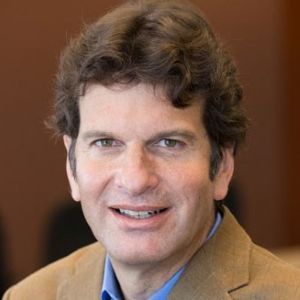
Jeffrey Rosensweig
We were gym buddies at Peachtree Presbyterian Church for a few years, though none of us were very strong. Despite his impeccable academic record, never once looked down on me for going to a college with an 84% acceptance rate.
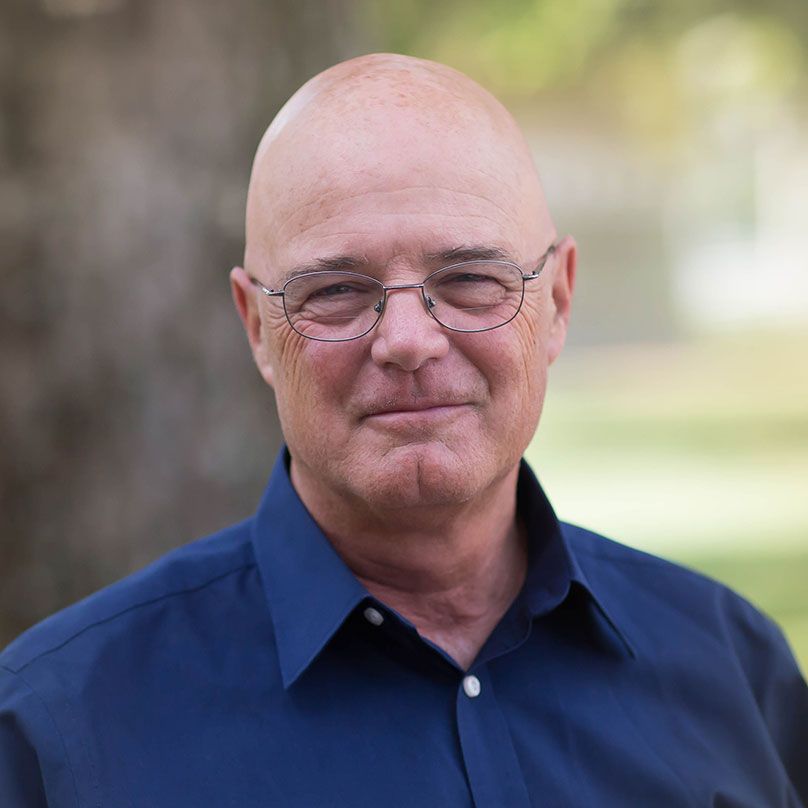
Brian McLaren
Took me seriously and provided much needed encouragement at a Christian writers conference in Nashville in 2018. The preeminent liberal Christian writer.

John Grisham
Although my work isn’t fiction, Grisham influenced me to love reading as much as any author out there; this taught me how to write.

Malcom Gladwell
No writer has ever thought outside the box as much as Gladwell. I modeled my writing after his.

Kay Redfield Jamison
Jamison’s work taught me to think of my mental illness as an advantage, rather than a disadvantage.

Tim Keller
The academic nature of Keller’s writing challenges the status quo of religious writing. I hope mine does the same.
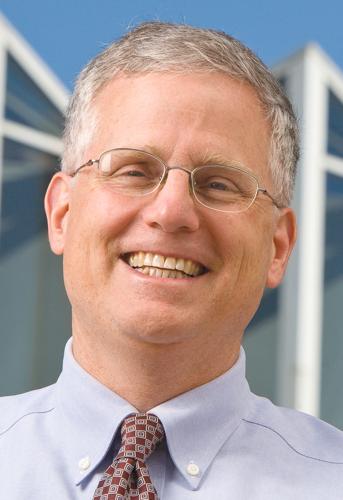
Billy Peebles
Billy’s security, accessibility, and encouragement through the years has helped me make an impact on the world. Interestingly enough, he was the Headmaster of my high-school’s rival high-school, and the rivalry is quite fierce. To prove my point, our school once held up a sign that read, “Thanks for Applying!” to their stands at a football game. Not only a legend at Lovett, but also a legend to those who have gotten to know him at Westminster.
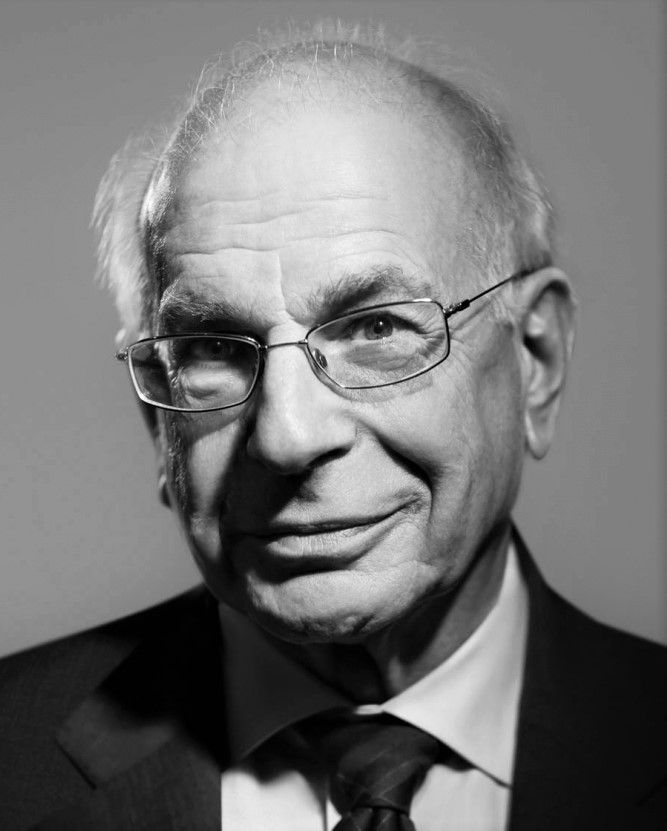
Daniel Kahnehan
I have used Daniel Kahnehan’s Thinking Fast and Slow in nine of my first ten books. That book is already a classic and will continue to awe people for years to come.
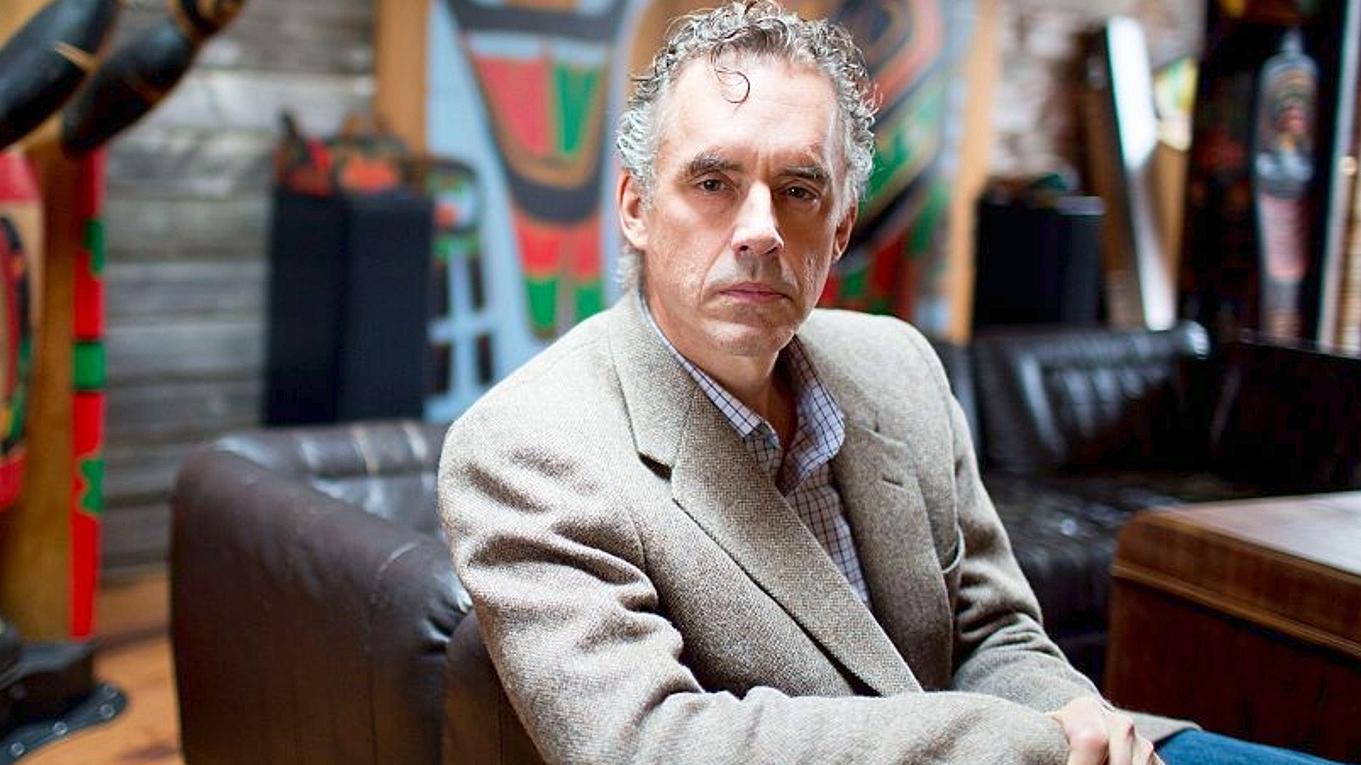
Jordan Peterson
I used to think what I said in my books were harsh until I read his classic, 12 Rules For Life: An Antidote into Chaos. I use this in my next book, Rolling The Dice: Risk Aversion Explained. I don’t agree with everything that Peterson says, but I’m smart enough to not enter into a debate with him on live TV. He has a brilliant mind, and although he is known as conservative, only a fraction of what he writes or speaks about touches politics.

Rick Warren
Much of his classic A Purpose Driven Life is not taught anymore in churches, which is a shame. One of the few mega-church pastors I trust.
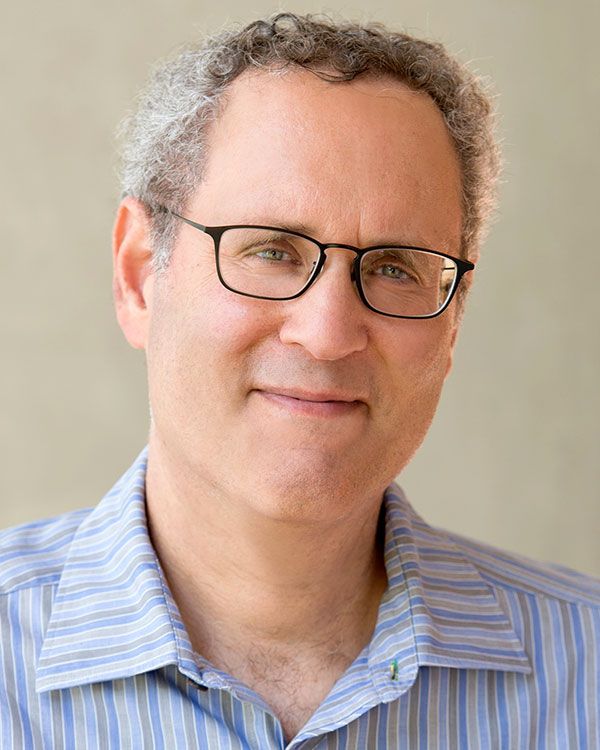
Michael Gerhardt
Gerhardt is a UNC law professor who has testified before the supreme court several times. I use Gerhardt's most recent book, Lincoln's Mentors: The Education of a Leader, in a few of my books. More than anything else, that book has taught me how to make forceful political attacks.
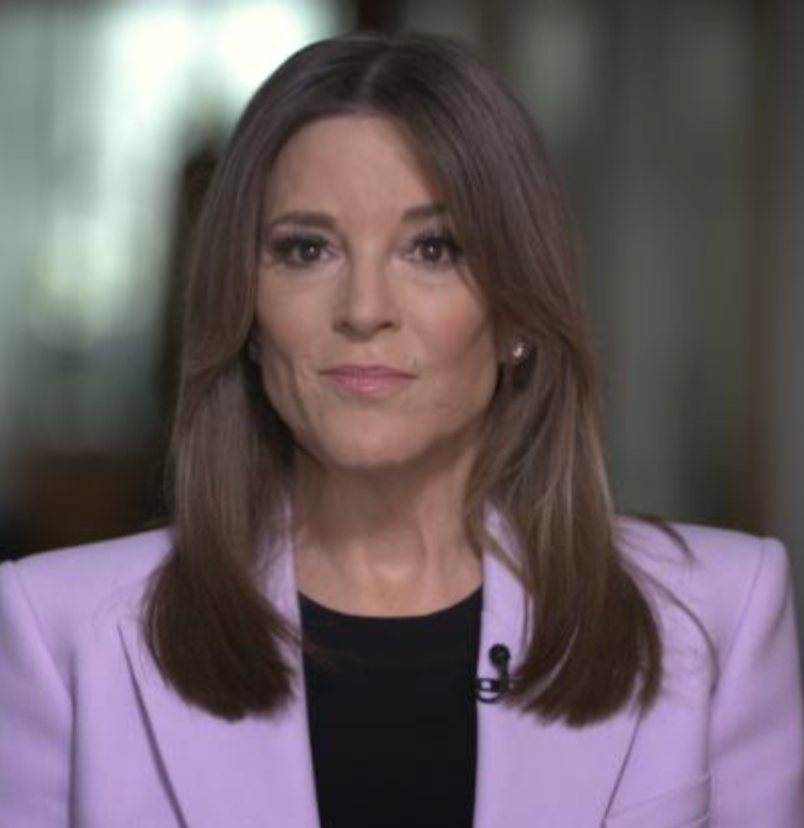
Marianne Williamson
I might not be voting for you for President in 2024, but no quote has inspired me more than your famous quote, which details how far too many of us are afraid of our own light.
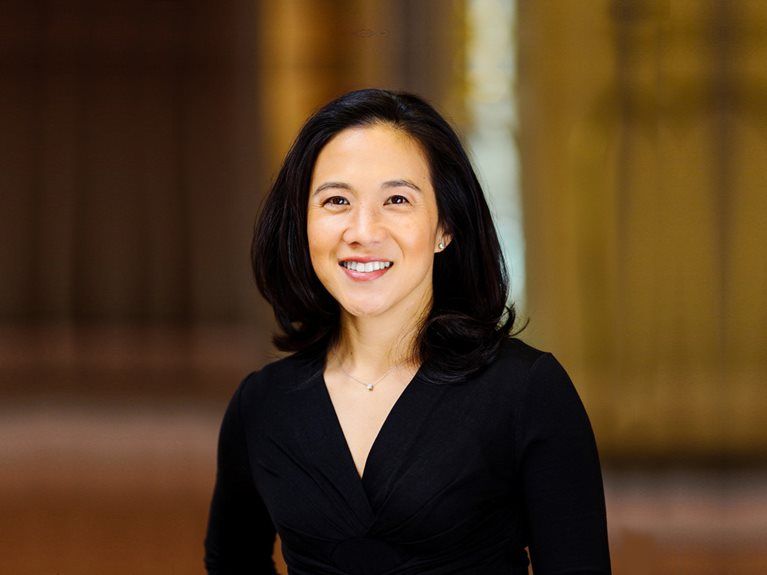
Angela Duckworth
Duckworth puts it best in her New York Times best selling book "Grit" when she said "It's not what you have; it's what you do with what you have."
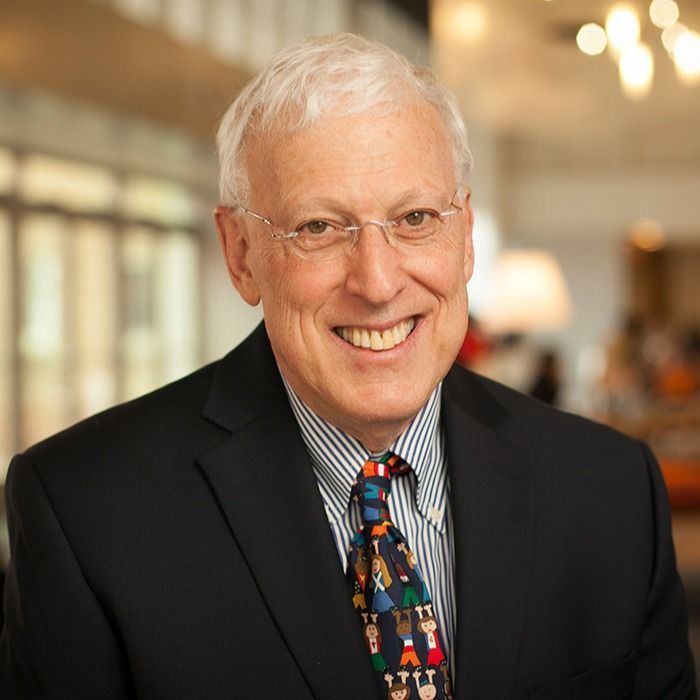
Robert Sternberg
I have used Sternberg's Triarchic Theory of Intelligence in both my reports on Education Reform and how artificial intelligence will affect the workforce/education systems. He has inspired me to not only think outside the box, but nowhere near the box.
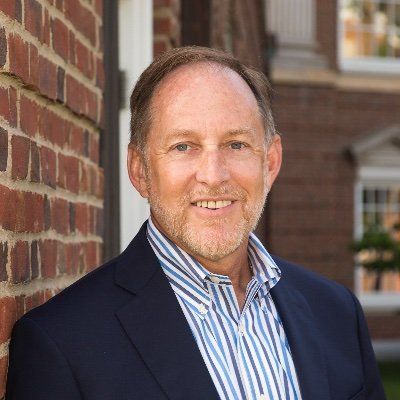
John Knapp
Arguably the most influential professor of mine at Samford University, Dr. Knapp made me realize how important practical intelligence, divergent thinking, and EQ are while I was in college. He served as President of Hope College and Washington & Jefferson College. I also learned a great deal about Atlanta’s economic development from him.
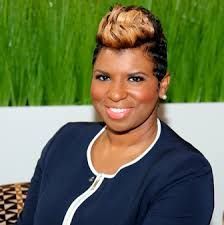
Valerie Bennett
Dr. Valerie Bennett, often referred to as "The STEM Doctor," is a distinguished educator, engineer, and advocate for STEM (Science, Technology, Engineering, and Mathematics) education, particularly among underrepresented groups. A native of Atlanta, Georgia, Dr. Bennett holds a Bachelor of Engineering in Mechanical Engineering from Vanderbilt University, as well as both a Master of Science and a Ph.D. in Mechanical Engineering from the Georgia Institute of Technology. I had Dr. Bennett for Physics in 9th grade. We have remained close since I graduated high school and I not only consider her one of my biggest cheerleaders, but a second mother.

Dave Brandon
Has been very supportive of my various endeavors ever since I sent him a letter congratulating his company on keeping the price of a 1-topping pizza low enough during high inflation. Former CEO of Domino’s. The only problem I have with him is that he is unwilling to give me the recipe for the cookie brownie.
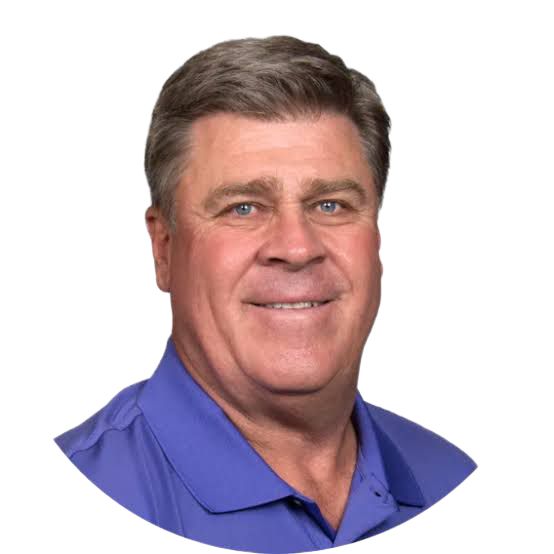
Hal Sutton
Sutton was one of my heroes growing up. Not only is he one of the most successful PGA Tour players of all time, having won 14 times on tour, he was also a Ryder Cup captain. Writing well and playing golf well both require a tremendous amount of discipline. Sutton has instilled this in me during the last year.
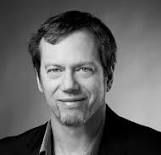
Robert Greene
My favorite quote of his is “always stick to what makes you weird, odd, strange, different. That’s your source of power.” It reminds me of an Albert Einstein quote when he once said, “Being alone is painful when you’re young, but delightful when you’re mature.”
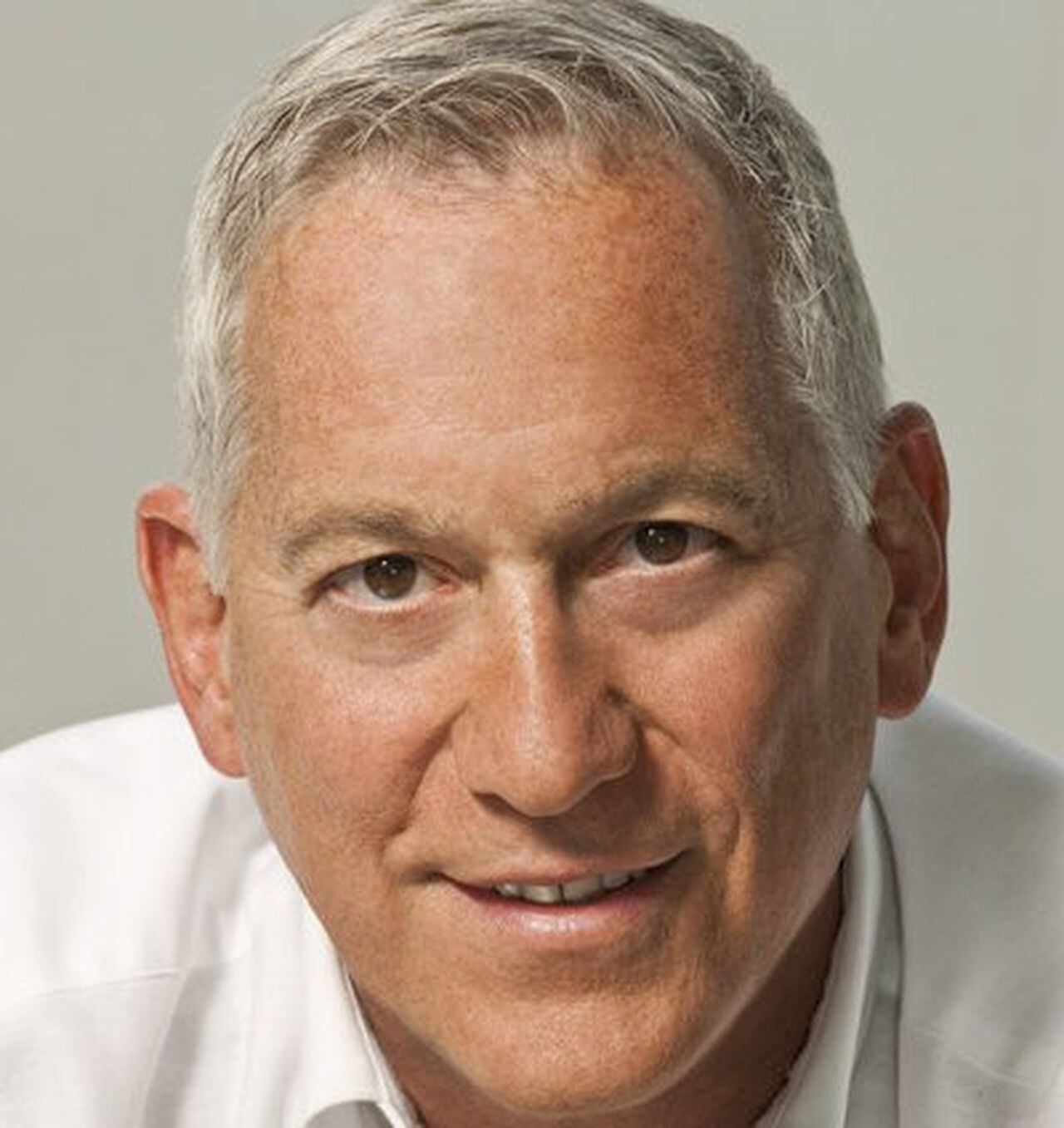
Walter Isaacson
I have read and been inspired both by Isaacson’s biography on Steve Jobs and Elon Musk. Isaacson wrote the foreword for Eric Motley’s “Madison Park: A Place of Hope.” I have known Motley for seven years and he has mentored me during this time.
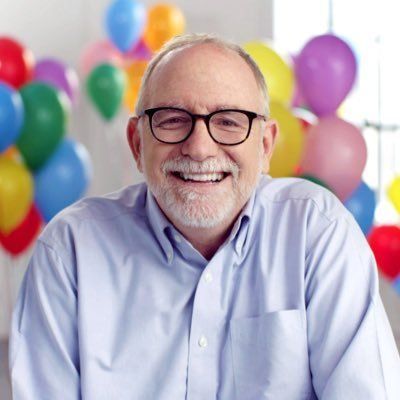
Bob Goff
Although his books are primarily focused on Christianity, his best-selling book, “Love Does” delves into psychology a bit. He encourages the reader to be high in “openness to experience” by saying yes to everything. He encourages the reader to do so because most innovators are high in “openness to experience.”
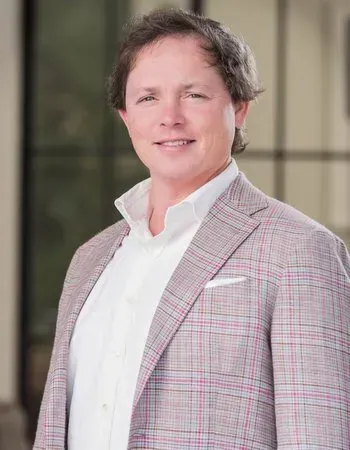
Bonneau Ansley
Grew up in Buckhead like me, but like me you would have never guessed it with his work ethic. Built one of the most successful real estate companies in The South.
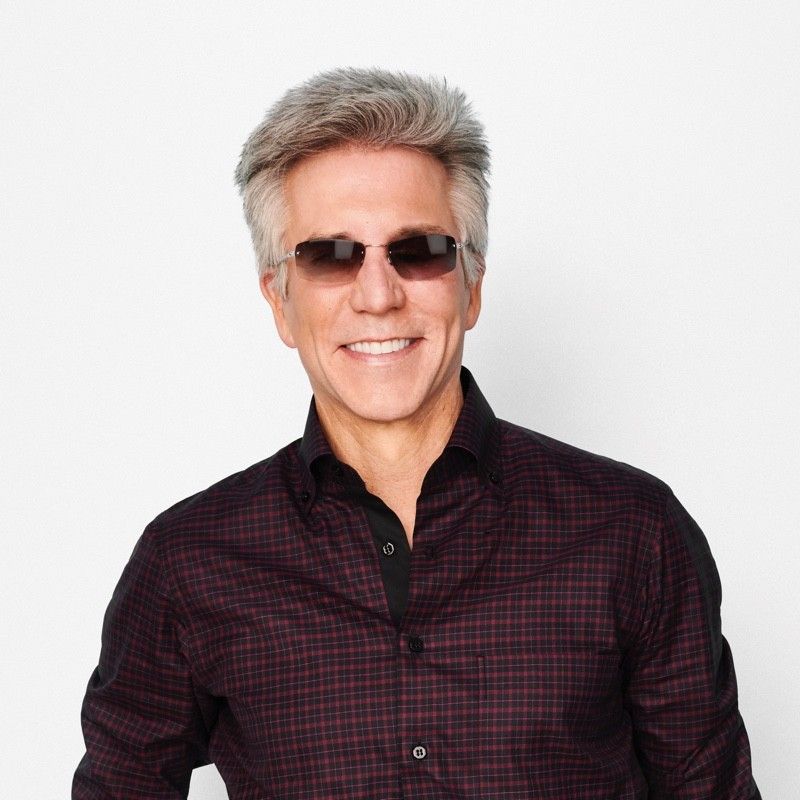
Bill McDermott
I reached out to Bill McDermott off a cold-email in 2015 demanding that he hire me. We have had a close relationship ever since. He has dominated in the business world wherever he has been whether that be Xerox, SAP, or ServiceNow.
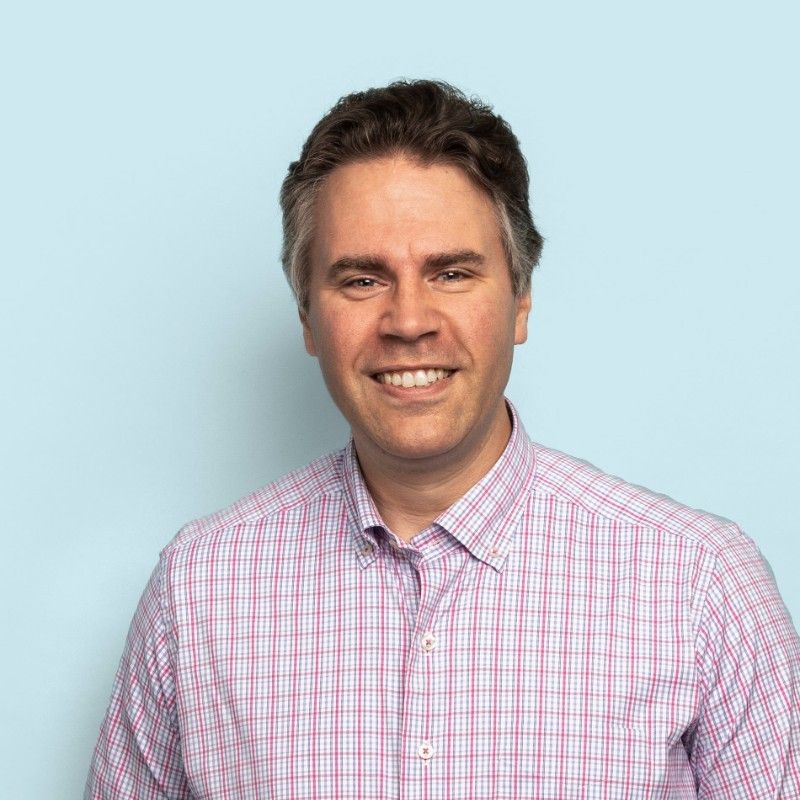
Nick Tzitzon
Nick Tzitzon served as SVP of Marketing at SAP and is now the Chief Strategy Officer at ServiceNow. The best advice that Tzitzon has given me through the years has been to never think of yourself as the smartest person in the room.

Eric Motley
I met Motley because we were in the same fraternity at Samford, Sigma Chi, myself being 16 years his junior. Motley was the youngest appointee of the George W. Bush administration at age 27. After a long career at the Aspen Institute, he now serves as Director of National Galley of Art.
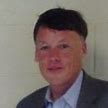
Bill McGahan
I met McGahan as a senior in high-school playing golf. I knew I needed to be like him in order to have success in life. After a long career in finance, he formed Georgia Works, which is an organization that is dedicated to getting the homeless off the streets and working again.
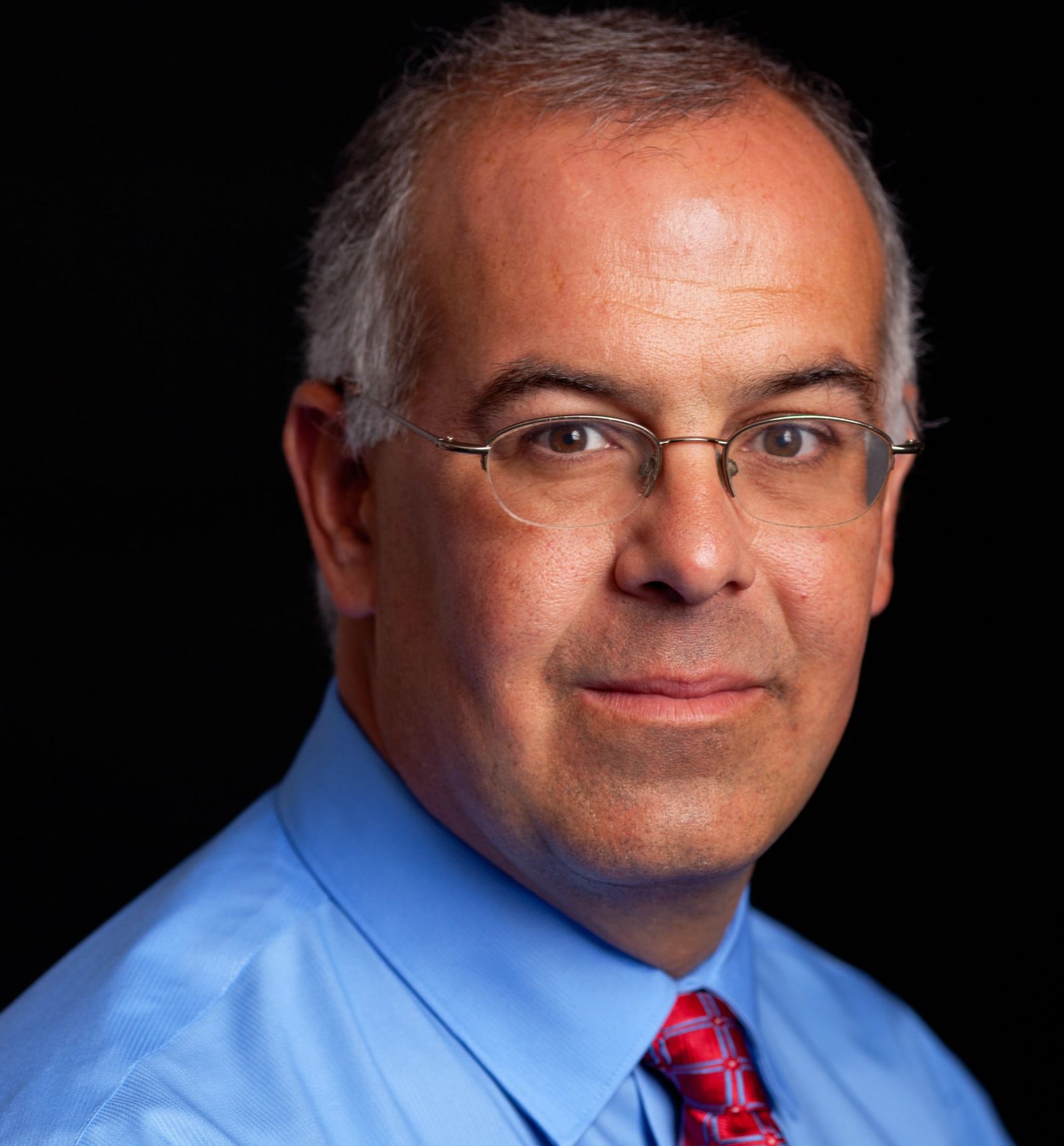
David Brooks
My writing is eerily similar to Brooks’ writing. Brooks is the author of several New York Times best sellers and is an op-ed columnist at The New York Times. Always the encouraging sort, when I met him at Peachtree Presbyterian Church is 2019, he told me exactly what I needed to hear: “As a writer, you get to say what you think.”

Anna Lembke
Anna Lembke is a psychiatrist at Stanford University. I use her book, Dopamine Nation: Finding Balance in the Age of Indulgence, in a few of my books and interviews.


Nasssr Ghaemi
Ghamei, author of New York Times best-seller A First-Rate Madness: Uncovering the Links Between Mental Illness and Leadership, has arguably had the greatest influence any writer has had on me. Our form is not only nearly identical, he taught me how to shape and frame arguments in a convincing way.
Michael Lewis
Michael Lewis: Although I haven’t read any of Lewis’ books, I use two of his books that were turned into movies, Moneyball and The Big Short, in my books.
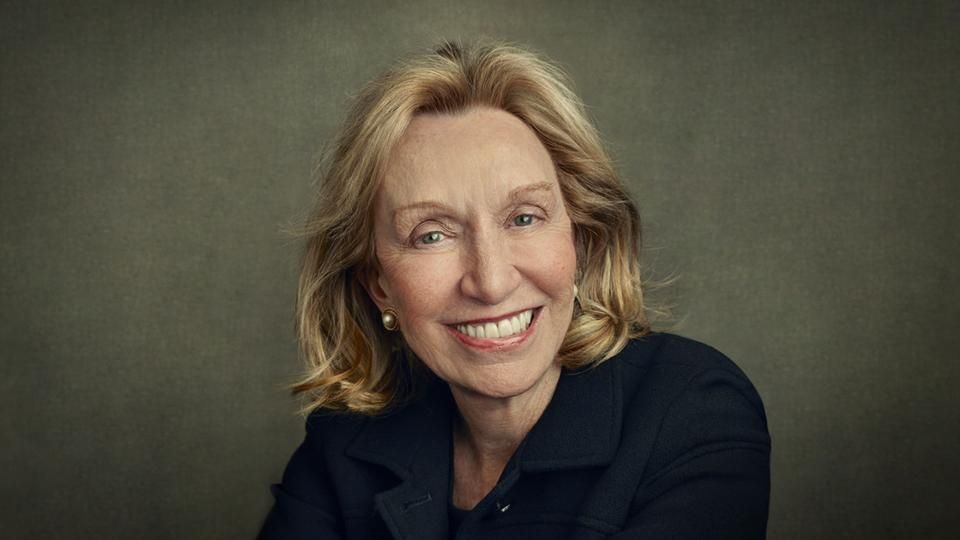
Doris Kearns Goodwin
Thanks for explaining why Abraham Lincoln and Teddy Roosevelt were such great leaders. May I become as good of a leader as they were

J.K. Rowling
I have fond memories of my mother reading Harry Potter to me while I was young and reading her books myself. She made reading fun for me. Like Rowling, I also wrote at my full-time job when I was first getting started.
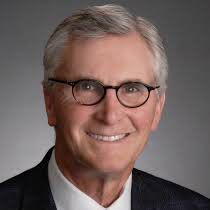
Tom Hough
Even from a young age, I sought out mentors to help guide me on a path to be successful. Hough served as Vice Chair and Managing Partner of the Americas Assurance practice at EY, where he oversaw audit and assurance services across North and South America. He gave me some great advice during breakfast at OK Café during my senior year at Westminster. Even then, I was geared up to enter the workforce.
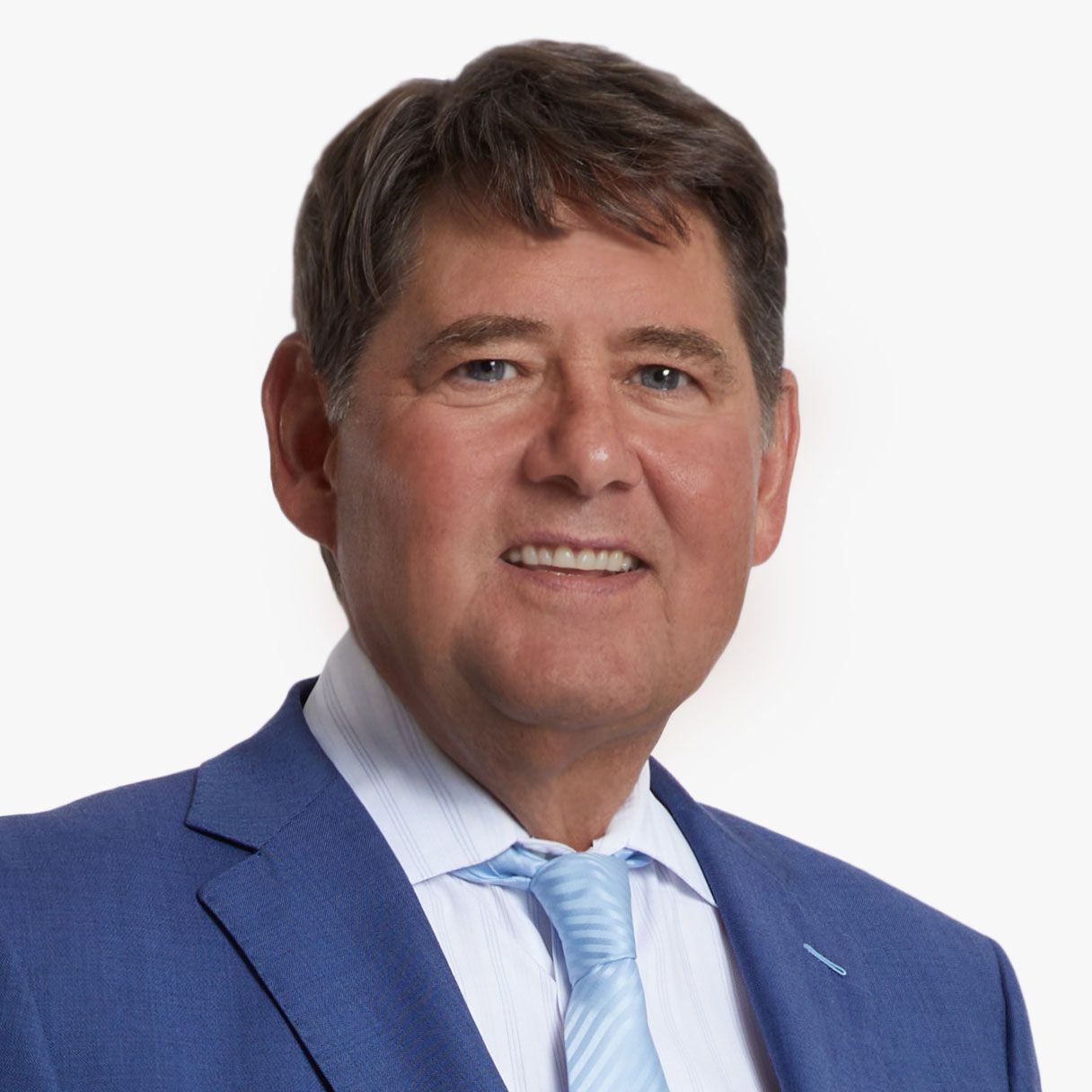
Tom Noonan
I would have somehow gotten into The Scheller School of Business despite my poor grades and GMAT because he offered to write a letter of recommendation. One of Georgia Tech’s most successful graduates. Self-made billionaire.
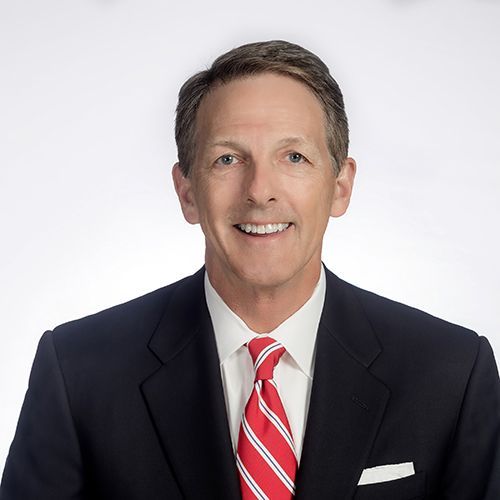
Bubba Chrismer
If I ever become president one day, it is because I have taken his advice in the Summer of 2008 to read as much as I could. One the Deep South’s most successful commercial real estate producers from the late 1980s to COVID-19. The end date of his success will be discussed in my 17th book: "Relatively Speaking: When and When Not To Compare Yourself to the Rest"
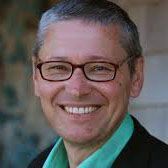
Greg Mankiw
Greg Mankiw is arguably the most well-known economist in the world because of his economic textbooks. I used them both in high school and college. Those textbooks made economics interesting and fun for me.
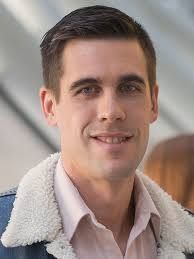
Ryan Holiday
I haven't read any of Holiday's work, but the most important thing I learned from him is to have successful mentors. Holiday has looked up to Robert Greene a great deal. Also, if people ever ask me how to read books, I will defer to what Holiday has said in the media.

Sahill Bloom
I have enjoyed being on his email list because he is full of wisdom. One of his recent emails, in which he shares a parable that encourages you not to argue with a fool, reminds me of the famous Mark Twain quote: “Never argue with stupid people, they will drag you down to their level and beat you with experience.”


